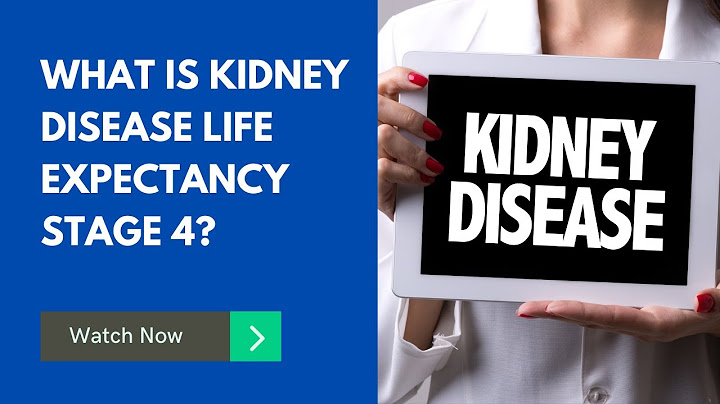Urinary tract infection (UTI) might just be the most common infection in the country, affecting more than 80 million adult Americans and ultimately responsible for nearly 10 million doctor visits every year. While the infection is easily treatable with antibiotics, the probability of recurrence is almost 20%. The worst part is, those who suffer repeated bouts of UTI are at more risk of their bodies developing a life-threatening response called sepsis, otherwise known as blood poisoning – your body’s overtly active way to fight off infection. Show What is Urinary Tract Infection (UTI)? As the name implies, UTI is an infection that affects any part of the urinary system. Despite the fact that women are more susceptible to it than men, the risk of men getting infected increases as they age. UTI is generally caused by certain strains of bacteria residing and multiplying anywhere in the patient’s urinary tract. The urinary tract is mainly composed of your kidneys, pelvis, ureter, bladder, and urethra. For this reason, UTI is also known by the following names: cystitis (bladder infection), urethritis (urethra infection), and pyelonephritis (kidney infection). However, most UTI are diagnosed in the bladder, where urine is stored before the body finally excretes it. It has also been established that women are more likely to develop UTIs because their urethra is shorter and closer to the anus. This increases the likelihood of infection via ascension of bacteria through the periureteral entry. Most UTIs are not considered serious. However, leaving it untreated can lead to more serious medical problems. Infection can likely spread to your kidneys and blood stream causing permanent damage, and even death. UTI: A Silent Killer The truth of the matter is, UTI shouldn’t be a serious enough condition and yet, the country spends almost $1.6 billion just to treat this disease. The infection isn’t actually deadly in itself, but the body’s natural response when threatened by such disease can have fatal consequences, especially when afflicted by the same illness over and over again as it is wont to do with UTI. Urosepsis, which has been known to kill and disable thousands of Americans, requires early diagnosis and treatment. Those who survive urosepsis are left suffering its life-altering consequences including but not limited to chronic pain, post-traumatic stress disorder (PTSD), organ dysfunction, and even amputations. This is why it’s always better to treat bacterial UTI early rather than wait for it to get worse. It’s also a dangerous mistake to leave UTI untreated as the infection will spread to the uninfected parts of your urinary tract. Some of the symptoms of UTI include frequent urges to pass urine, feeling of pain where the kidneys are located, feelings of fatigue, and thick or cloudy urine that may or may not include blood. If you suspect yourself or any member of your family to be suffering from UTI, you must consult a urologist immediately to help you fight off the infection. You might be sent to do some additional tests but it will be all worth it in the end. Sources: Adult UTI, AmericanUrologicalAssociation.org Pyelonephritis is a type of urinary tract infection where one or both kidneys become infected. They can be infected by bacteria or a virus. It can cause people to feel very sick and it requires treatment. This article will tell you more about kidney infection and what to do about it. See More See Less Normal ConditionsThe urinary tract is the body’s drainage system. It includes two kidneys, two ureters, a bladder, and a urethra. Healthy kidneys work day and night to clean our blood. These 2 bean-shaped organs are found near the middle of the back, just below the ribs. One kidney sits on each side of the spine. Our kidneys are our body’s main filter. They clean about 150 quarts of blood daily. Every day, they form about 1-2 quarts of urine by pulling water and waste from the blood. Urine normally travels from the kidneys down to the bladder and out through the urethra. As a filter, the kidney controls many things to keep us healthy:
When the kidneys are damaged, they may not function well. In most cases, some damage won’t cause too many problems. But, major damage may require more treatment, like dialysis. Symptoms or signs may include:
Very young children (younger than 2 years old) may only have a high fever. They may not feel pain or have problems urinating. Older people, also, may not show typical signs. Instead, they may show signs of confusion, muddled speech, or visions. This infection can be life threatening. It is important to seek medical care quickly if you think you have a kidney infection. Although the urinary system is designed to keep bacteria out, problems can occur. Escherichia coli (E. coli) or other bacteria found in the intestines can enter the urinary tract through the urethra. These bacteria can travel up into the bladder. When this happens it can cause cystitis (inflammation of the bladder). It can also cause a
urinary tract infection (UTI). Cystitis occurs in 1-3% of adult women per year. If the infection continues up to the kidneys, it can cause kidney infection. This problem is rare but it can be severe. About 1 in every 30 cases of UTI leads to a kidney infection. You are more likely to get a kidney infection if you have frequent bladder infections or have a structural problem in the
urinary tract. Urine normally flows only in one direction—from the kidneys to the bladder. If the flow of urine is blocked or flows in the wrong direction, infections can happen. Urine flow can be blocked by many things, including: People with diabetes or a weak immune
system are at high risk for infections. Pregnant women with UTIs should be seen by their health care provider and treated as soon as possible. A kidney infection in a pregnant woman can be very serious. Many problems in the pelvis and abdomen can cause symptoms that look like kidney infection. Your doctor will want to diagnose your problem correctly to learn what’s happening and find the best treatment. To diagnose the problem, your health
care provider may use the following tests: Your doctor will also look for problems that can cause kidney infection, such as kidney stones or birth defects. These things can be treated to prevent future infections. Your treatment will be based on a clear diagnosis of the problem. Kidney infections are treated with
antibiotics. This medicine is offered as a pill to be taken at home. If the infection is very bad, or if the patient is vomiting, then you may need to go to a hospital to get antibiotics in your vein (IV). To heal the infection and stop it from returning, it is common to get two or more weeks of antibiotics. After treatment, urine cultures are used to make sure the infection doesn’t return. If it does, two more weeks of medicine is offered. If it happens again, up to 6 weeks of medicine
may be used. Surgery may be needed if a block in the urinary tract or a birth defect is found. If surgery is not needed, the patient will feel much better within a few days of medicine. Even though the symptoms are gone, it is important to finish the entire course of medicine so it doesn’t return. If the kidney infection returns more than once, a small dose of antibiotic may be used every day use to keep the kidneys healthy. Untreated infection can damage the kidneys and lead to long term problems. In rare cases, kidney infections can lead to kidney disease, high blood pressure, or kidney failure. If kidney infection spreads to the bloodstream it can cause a serious problem called sepsis. Can the bacteria that cause kidney infections be resistant to antibiotics?Yes, the bacteria can be resistant to some, but it not all antibiotics. Both urine and blood cultures are taken before starting medicine. These tests help the health care provider know which medicine would work best for your case. What can I do to avoid this problem?Women should wipe from the front to the back after having a bowel movement. This cleaning will help move bacteria away from the urethra opening. Urinating after sex may help to flush out bacteria in the urethra. Some forms of contraception may help (not including diaphragms or spermicidal foam). What if I am pregnant?Urinary tract infections (UTI) during pregnancy are dangerous for both mother and baby. These infections should be treated quickly. There are safe medicines to use during pregnancy to cure the infection. Explore Further

 What happens if you ignore a kidney infection?As we mentioned, a kidney infection that doesn't get treated can cause a condition known as sepsis. This happens when your body responds overzealously to an infection, which can lead to a dangerous drop in blood pressure and cause the body to go into shock, according to the NIDDK.
When should you go to the ER for a kidney infection?If treated promptly, a kidney infection shouldn't cause serious harm. If you experience a fever over 101°F, pain, are unable to drink or take oral medication along with some of the other symptoms, get to the nearest urgent care or ER.
Can a kidney infection go away on its own?Kidney infections can lead to serious complications if untreated so it is important to see a doctor and not wait to see if the infection goes away on its own. Treatment for kidney infections depends on the severity of the infection and the patient's overall health.
How long is too long to leave a kidney infection?Your GP will tell you when to go to hospital for kidney infection. You should contact your GP if your kidney infection symptoms get worse or don't start to get better within 48 hours (two days) of starting the antibiotic.
|

Related Posts
Advertising
LATEST NEWS
Advertising
Populer
Advertising
About

Copyright © 2024 berikutyang Inc.














